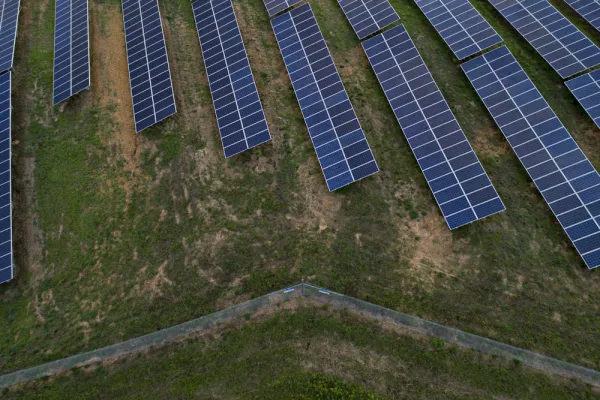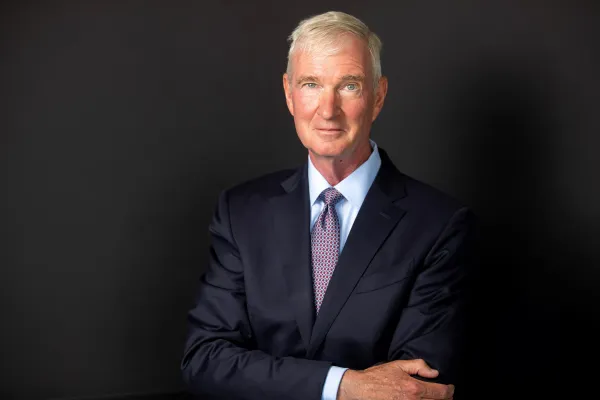With ESG rapidly growing in importance throughout the global financial community, the Saudi Exchange – one of the world’s largest stock markets with a total market capitalization of over $2.5 trillion – is advancing its efforts to promote the importance of ESG and achieve long-term sustainable growth in Saudi Arabia and the broader region. With sustainability serving as a fundamental component of Saudi Arabia’s Vision 2030 initiative, the Exchange is prominently supporting the integration of ESG across its business and encouraging stronger ESG disclosure across its ecosystem.
“ESG, as a concept, is relatively new in the Middle East, but it’s of critical importance to the Saudi ambition and something that we have embraced, as it is central to our effort to develop a more sustainable economic landscape that we believe can drive long-term economic growth for our listed companies,” says Mohammed Al-Rumaih, CEO of the Saudi Exchange.
Capitalizing on the benefits of ESG and sustainability
“We are at the beginning of what we expect will be a long growth period for ESG investing, and we consider it our responsibility to enable our listed companies to capitalize on this significant opportunity,” he says.Furthermore, Al-Rumaih points out that ESG adoption will enhance returns on investments by allowing for better allocation of capital.
“Shifting focus towards sustainability enables companies to reduce costs through lower energy consumption and the reduction of waste,” Al-Rumaih says.
Beyond appealing to investors, Al-Rumaih notes that there are myriad reasons why ESG adoption is a business imperative for all companies.
“Customers and employees, alike, seek out companies that stand for more than just their bottom line. Companies that adopt ESG will attract a broader customer base and have an advantage in their ability to attract, motivate and retain talent,” he says.

Alignment with Vision 2030
Central to achieving the goals of Saudi Arabia’s Vision 2030 is the Kingdom’s Financial Sector Development Program (FSDP), which seeks to develop a diversified financial sector and ensure Saudi Arabia builds an advanced capital market. Advancing ESG issues is core to this mission of diversifying the economy and creating a sustainable financial sector, says Al-Rumaih.“Sustainability sits at the heart of everything that the Kingdom does as it pursues Vision 2030,” he says, noting that major programs such as the Saudi Green Initiative and the wider Middle East Green Initiative (both launched in October) show the Kingdom’s commitment to achieving net-zero carbon emissions by 2060.
“As part of Vision 2030, Saudi Arabia aims to become a truly global nation with a financial ecosystem that connects opportunities in the Middle East with businesses and investors in the rest of the world. Our commitment to ESG is vital to achieving these goals. The Saudi Exchange has a central role to play in encouraging sustainable financial growth,” Al-Rumaih says.
Issuing new ESG disclosure guidelines
In October 2021, the Saudi Exchange issued ESG disclosure guidelines for its 200+ listed companies and others seeking to be listed on the Exchange. Developed in alignment with the UN Sustainable Stock Exchange (SSE) model guidance (the Saudi Exchange became an official SSE partner in 2018), the new guidelines introduced reporting standards and options for companies of all sizes – enabling them to greatly improve the quality and transparency of their reporting or begin the practice of reporting, if they have not done so previously.“When our exchange started our ESG journey back in 2018, we found that while some of our listed companies were already at advanced stages in disclosure and reporting, the majority were not familiar with best practices for ESG reporting,” says Al-Rumaih. “Of course, this is a global problem, as companies across the world follow different methodologies and standards.”
The ESG guidelines issued by the Exchange are easing this challenge for companies in Saudi Arabia, he notes. Further, higher-quality ESG reporting allows both corporate leaders and investors to more accurately assess the true progress a company is making in moving toward sustainability compared to its competitors. It also enables leaders to identify targeted ways to improve a company’s ESG profile while also helping investors spot new opportunities – as ESG information often provides key insights into a company’s management capabilities and priorities.

Raising ESG awareness
“We want the new ESG disclosure guidelines to act as a catalyst to support sustainable and inclusive business practices in the Saudi capital market,” says Al-Rumaih. Since the guidelines were published, they have served as a powerful vehicle to raise awareness about the importance of ESG among companies in the region, he notes, spurring them to examine and improve their sustainability initiatives and ESG reporting efforts. “The guidelines will encourage companies to voluntarily disclose their ESG performance while offering them structure and support in their ESG journey moving forward,” Al-Rumaih says.And, as the guidelines will be continually updated to reflect the evolving ESG landscape, they will remain a relevant tool for the Saudi Exchange in its ongoing efforts to support companies in delivering sustainable corporate growth, he adds.
Beyond the release of the guidelines, the Saudi Exchange has implemented additional measures to drive ESG implementation. In February 2022, the Exchange launched an ESG awareness-building webinar series to broaden understanding among listed companies of the importance and benefits of ESG implementation from the perspective of many different stakeholders.
Importantly, Al-Rumaih notes, the Saudi Exchange is playing an active role in helping companies achieve their sustainability goals by directly advising their leaders on specific ways to improve both their ESG reporting and overall ESG profile by implementing best practices into their operations. For example, the Exchange conducted a training session on the fundamentals of ESG disclosures and best practices for issuers to guide them as they work to implement ESG within their organizations.
The Saudi Exchange recognizes the importance of its role as a key driver of sustainability and ESG in Saudi Arabia. The Exchange has been actively engaging stakeholders such as government entities, universities, investors and issuers to move Saudi Arabia’s sustainability efforts forward.
Leading by example
Along with its efforts to guide companies through their ESG journey, the Saudi Exchange has undergone several internal changes to advance its own progress and continues to strive to improve its internal ESG best practices.“ESG is more important than ever to us, and we currently have more than 15 initiatives centered on a few key themes – including economy, environment, education and community – that drive our ESG efforts,” says Al-Rumaih, noting that Saudi Arabia’s Public Investment Fund (PIF), a major shareholder of the Saudi Tadawul Group, recently pledged $400 billion in global ESG investments.
Creating a more diverse workforce is an ESG priority for the Saudi Exchange, says Al-Rumaih. “The Exchange was the first company in Saudi Arabia to sign the U.N.’s Women’s Empowerment Principles in 2019,” he adds.
The future of ESG in the Saudi capital market
The Saudi Exchange’s recent initiatives – including launching voluntary ESG disclosure guidelines and assisting companies in the Kingdom of Saudi Arabia to incorporate high-quality ESG reporting and best practices into their operations – are key steps to ensure that the Saudi capital market becomes a major destination for investors. And, just as importantly, they are encouraging investors to unlock the many new opportunities ESG is creating in the region and beyond.Learn more about the Saudi Exchange’s commitment to advancing ESG.






